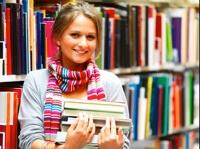Travel
Typ práce: Ostatné
Jazyk:
Počet zobrazení: 2 088
Uložení: 73
Travel
OUTLINE
- REASONS FOR TRAVEL
-for pleasure
-from necessity (on business)
-many people commute every day to work or school
-other reasons: to develot their personality by learning how to be more tolerant, learning foreign languages, tasting ethnic food, etc.
- THE IMPACT OF TRAVEL(TOURISM) ON OUR LIVES AND OUR ENVIRONMENT
A growth industry: ...
Advantages:
-it broadens our mind and horizon: ...
-we develop our communicative and organizing skills
-has a positive impact on local economy (the main income, it brings work to the local people)
-for poorer counties it may offer the best hope for development.
Disadvantages:
In many tourist destinations it has a bad effect on the local people`s lives:
WATER:
-Africa:villages with a single tap, while in hotels there are taps in almost every room
-Spain: a tourist uses 880 litres of water per day and a local only 250 litres.
-in the Caribbean: springs are piped only to hotels
-Majorca: water is rationed
HOUSING:
-Majorca:there is no affordable housing left for the local people to buy
-Philippines: evicted from their homes
THE HOST COUNTRY MAY NOT SEE MANY BENEFITS
-low-end package tourists
-mass tourism leaves little money inside the country.
ITS IMPACT ON THE ENVIRONMENT
-it changes the whole environment of airland, water, forests are felled and it might d destoy the beauty and the idyllic view of the destination which is the reason of so
many people coming there.
-Florence: the inhabitants have to live with all the pollution, gridlock and crime
generated by millions of tourists
-garbage, destroyed historical monuments
POSSIBLE SOLUTIONS:
-boosting hotel taxes
-charging admission to some public squares
-to discourage some of the visitors
- MEANS OF TRANSPORT
a)BY LAND
BY SEA
BY AIR
b)personal vehicles (on our own)
public transport (transportation services)
municipal public transport (trams, buses, subway, etc.)
BY LAND:
Travelling by train
-offers a combination of speed, comfort and pleasure
-types
-advantages and disadvantages
-prices
AT THE RAILWAY STATION
describe +on a train
Travelling by bus
-very common nowadays
-advantages and disadvantages
COACHES-pros and cons
Travelling by car
-the most common way of travelling today
-advantages and disadvantages
-driver`s licence and traffic rules
BY AIR:
Travelling by plane
-the safest and fastest way of travelling
-advantages and disadvantages
AT THE AIRPORT
+on a plane
BY SEA
-ferries and ocean liners
-advantages and disadvantages
- TRAVELLING IN THE PAST, PRESENT, IN THE FUTURE
- POSSIBILITIES TO TRAVEL ABROAD
-are there any difficulties?
- HOLIDAYS
-types
-accomodation
-favourite destinations
-activities which can be done on different types of holidays
-things to be arranged and checked before checking of
-my best and worst holiday (describe)
- PICTURES AND ROLE-PLAY
REASONS FOR TRAVEL
Travelling is nowadays becoming more and more common, because people want to get to know new people, see new places and cultures. It is not difficult if you have enough money and time. People travel:
-for pleasure: For most of people travelling is a great hobby. They travel for fun, to relax.
-from necessity: on business or they have jobs requiring a lot of travelling like politicians, diplomatists, artists or managers.
-some of them commute every day to work or school- for these people travelling might be an unpleasant and tiring duty.
-they want to develop their personality by learning how to be more tolerant towards other people, other nationalities and cultures or they want to learn foreign languages, tasting ethnic food, etc.
THE IMPACT OF TRAVEL (TOURISM) ON OUR LIVES AND OUR ENVIRONMENT
Travel is closely connected with tourism which has become a big business. In many countries it has become one of the main industries/ it provides the main income and has a huge impact on local economy. However, it has both advantages and disadvantages,too.
A growth industry:
Tourism is the world`s largest and fastest growing industry. In 1950, 25m people travelled abroad; last year it was 750m. The World Tourism Organization estimates that by 2020 1,6bn people will travel each year, spending over two trillion US dollars.
ADVANTAGES:
-it broadens our mind and horizon: we get to know new people, see new places of interst,
cultures, customs, traditions, historical buildings and monuments,etc.
-we develop our organizing and communicative skills, our knowledge of foreign languages.
-to develop tolerance towards others-to get rid of prejudices
-has a positive impact on local economy (provides the main income)
-for poorer countries tourism may still offer the best hope for development.(it offers more job opportunities for the locals)
-Majorca was transformed from one of the poorest parts of Spain to the richest in per capita income.
DISADVANTAGES:
In many tourist destinations it has a bad effect on the local people`s lives:
WATER
To millions of tourists, foreign destinations are exotic paradises, unspoilt, idyllic and full of charm. But many of the world`s resorts are struggling to cope with relentless waves of tourists whose demands for ever more swimming pools and golf courses are sucking them dry.
In Africa: you can see a village with a single tap, when each hotel has taps and showers in every room. You can see women with pots on their heads from your hotel room.
In Spain: a tourist uses 880 litres of water per day and a local only 250 litres.
In Majorca: water is rationed
and in the Caribbean: people go without piped water during the high tourist season, as springs are piped to hotels.
HOUSING
In Majorca: Foreign nationals want to buy up property on their idyllic island.They feel like their island doesn`t belong to them anymore. There is no affordable housing left for the local people to buy.
Philippines: many people were evicted from their homes. The intention of the authorities was to make way for holiday resort.
THE HOST COUNTRY MAY NOT SEE MANY BENEFITS
-Low-end package tourists tend to stay at foreign-owned hotels cooped up in the hotel compound, buying few local products and having no contact with the local community.
-Mass tourism usually leaves little money inside the country-most of the money ends up with the airlines, the tour operators and foregn hotel owners.
ITS IMPACT ON THE ENVIRONMENT
-it`s the major concern.
-it changes the whole environment of airland, waters. Forests are felled and it might destoy the beauty and the idyllic view of the destination which is the reason why so many people come here.
-in Florence: Its inhabitants have to live with thepollution, garbage, gridlock and crime generated by 11 million visitors a year.
+the historical monuments are destroyed by the visitors.
POSSIBLE SOLUTIONS:
The is a talk of boosting hotel taxes and charging admission to some public squares to discourage at least some of the visitors, as well as to pay for cleaning up the mess.
The Future
The Vietnamese are opening up their country, Iran is working on a master plan for their tourism, Libya has paid 1million dollars only for a study.
However, tourism seems destined to become the victim of its success. It more often than not ruins the very assets it seeks to exploit, and having done the damage, simply moves off elsewhere.
MEANS OF TRANSPORT
If you travel somewhere The first thing you should do is decide how tp get to your destination. You may travel by land, by air, by sea.
BY LAND
Land offers the greatest variety of means of transport. There are motor road vehicles and bicycles on the one hand and rail on the other hand.
There are two ways of travelling: one is using our own means of transport (personal vehicles) and the other is to rely on the public transportation services and municipal public transport like trams, buses and the underground.
Travelling by train
-offers a combination of speed, comfort and pleasure.
There are two types: -fast/express trains
-slow/passanger trains.
ADVANTAGES:
-they are fast, because they don`t stop in every village.
-convenient for long distances, because it`s comfortable, some of them have a dining car, where you can have a meal or a sleeper, where you can overnight if you travel at night.
-there is much more space for you.
-you can work, read there, talk to other passangers, observe the countryside, take a walk or go to the toilet.
-you can book yout own compartment and buy a seat reservation.
-your luggage can be with you (you can put it in a racker above your head.)
-it is more comfortable than a bus, because there are fewer accidents than on roads and there are no traffic jams.
DISADVANTAGES:
-we have to get to the railway station with some other means of transport which requires more money.
-you have to change trains.
-in winter there are long delays
-sometimeswe have to wait long, sometimes we have lack of time to change trains.
-in passanger trains there are strange people and it`s quite dirty there,too.
-you can be fined by the conducter if you don`t buy a ticket in an office.
-quite uncomfortable to get on and off trains
BUT: modern trains have more advantages.
PRICES: quite expensive if you travel every day. You have to pay for comfort and speed. For long-distance holidays trains are good and cheeper.
AT THE RAILWAY STATION
-they are big, noisy and overcrowded places, where you can find several ticket offices-where you can buy a single or return ticket and a seat reservation.
-there is also a large daparture and arrival board with two or more waiting rooms (for mothers with small children, for smokers and non-smokers), lavatory, telephone boxes, left luggage office (lockers), restaurants or snackbars, book stalls where you can buy newspapers and magazines, shops, exchange office, bank, a cash dispenser (ATM) , customs office and information.
ON THE TRAIN
From this hall one goes through the underpassage directly onto the right platform.
From the platform we get on the train and look for a free seat or if we have a seat reservation, we have to find our compartment (carriage) .
We can spend time talking, observing, listening to music, having dinner or sleeping.
We have to buy or hand the ticket to the conducter/ or after the journey before leaving the platform we have to hand our tickets.
Travelling by bus
-very common nowadays
BUSES have mostly disadvantages:
-they are slow, because of traffic jams in cities and on the roads from nearby villages to cities.
-they are uncomfortable
-we have to stand sometimes
-there is no refreshment
-the roads are in bad condition.
For longer distances COACHES are used.
They are mostly used by travel agencies to transport holidaymakers.
They have more advanatages than buses:
-it has air-condition, video and refreshment.
-some of them have wifi and sockets, too.
-convenient for long distances
-they are faster, however if there are traffic jams, then it`s the same like buses.
PRICES: quite reasonable, for long distances maybe cheeper than trains, yet they are less comfortable.
Travelling by car
-the most common way of travelling nowadays
ADVANTAGES:
-you are independent, you don`t have to follow any timetable, you can go anywhere at any time you want.
-everywhere you can find motorways, car parks, petrol stations, restaurants (and toilets), where you can have a rest.
-you can sleep in a motel and continue your journey on the other day.
-there is more space in the trunk for luggage.
-sometimes more comfortable than planes
-they are quite fast.
DISADVANTAGES:
-they are expensive to purchase
-you have to pay for petrol, which if the vehicle has a big consumption, costs a lot of money.
-we have can`t avoid all the traffic jams
-it takes longer to get to your destination.
-it can be more tiring and be uncomfortable, since roads in Slovakia are in bad condition.
-you need to have driver`s licence to be allowed to drive a car.
To get a driver`s licence one must know how to drive and the traffic rules. Cars are to be driven on the right side of the road. This isn`t true in GB, where people drive on the left.
There are several means of transport which are used by municipal public transport:
UNDERGROUND (SUBWAY):if you live in a big city, which has got an underground, you don`t have to spend a lot of time commuting to work, These trains usually go every five minute, the rates are quite low and you can get to work or school quicklt, even during rush hours.
If there are no tubes, you have to go by bus or tram, traffic jams, overcrowded buses and noise can make your life difficult.
BY AIR- BY PLANE
ADVANTAGES:
-is said to be the fastest and safest way to travel according to the statics.
-it is convenient for long distances.
-quite comfortable, quite enough space
-you can get to any part of the world fast
DISADVANTAGES:
-the most expensive
-the most dependant on timetable and also weather conditions.
-sometimes flights are delayed, even cancelled
-most activities of terrorists take place on planes
-uncomfortable taking offs and landings
AT THE AIRPORT
If you want to fly, you have to book a seat on a plane long before the day of your departure.
AIRPORTS are large, busy and well-organized places.
First we should check the departure screens. This will tell you if there is any delay on your flight and at which desk you should check-in.
You should be there at least two hours before the flight and checking in before means avoiding queues.
You must never leave your luggage unattended, because it`s a big chance your luggage will be confiscated and even destroyed.
At check-in make sure that the check-in clerk correctly tags each item of your checked luggage with your destination airport`s three-letter code.
Once you have checked in, you can relax for a while and then you`ll have to go through pass control, to have your passport inspected to ensure they are valid.
Then you`ll arrive at the security point. You will place your hand luggage on a conveyer belt into an X-ray machine and a security guard will scan its content.
Then you`ll walk through a metal detector or you may be checked with a hand-held detector.
Then you`ll pass to a secure area, you can do duty or tax-free shopping. Boarding cards are required at the check-out to prove that you are flying today.
Some airports are so huge that gatting to a bouarding gate might take quite a lot of time.
As you go through the gate, the larger part of your boarding pass will be torm off leaving you only the small part.
ON THE PLANE
When we board the plane, flight-attendants help us and show us our seat. Before the plane takes off we have to fasten our seat-belts and we can unfasten them when the plane reaches its flight attitude.
After landing you`ll have to get through soem imigration procedures at your destination airport. Customs is normally just a formality. We just walk past customs office.
After you reach the baggage reclaim, you`ll find your baggage on the carousel, which circles.
In the worst case if your luggage gets lost, you should go to the lost-and-found property office and announce your loss to the local officer.
BY SEA
In some countries travelling by boat is popular. It is quite cheap, but can become uncomfortable, when the weather gets bad. If you travel for short distances, you may take a ferry, for long distances ocean liners are more convenient. Travelling by sea takes a lot of time, but it may be a unique experience.
| Podobné práce | Typ práce | Rozsah | |
|---|---|---|---|
|
|
Travel + slovná zásoba | Referát | 1 258 slov |
|
|
Travel téma | Maturita | 648 slov |
|
|
Travel – osnova na prezentáciu | Ostatné | 243 slov |
|
|
Types of travel | Referát | 2 349 slov |
|
|
Travel | Maturita | 656 slov |
|
|
Vocabulary: Travel | Referát | 383 slov |
|
|
Travel - maturitné témy | Maturita | 448 slov |
|
|
Travel broadens our minds | Referát | 1 565 slov |
|
|
Travel, Travelling | Maturita | 582 slov |
|
|
Transport and travel | Referát | 1 018 slov |
|
|
Travel and Tourism | Maturita | 340 slov |
Vypracované témy z anglického jazyka B1
| Ďalšie práce z rovnakej sady | Rozsah | |
|---|---|---|
|
|
The Cultural Life in Bratislava | 427 slov |
|
|
Culture and the Arts | 2 122 slov |
|
|
Education in Great Britain | 1 490 slov |
|
|
Education in Slovakia | 1 661 slov |
|
|
Education in the United States (US) | 1 159 slov |
|
|
Family, Home, Relatives | 2 646 slov |
|
|
Health care in Slovakia, Britain, US | 1 419 slov |
|
|
Hobbies and Leisure | 2 601 slov |
|
|
Holidays | 3 504 slov |
|
|
Holidays, customs and traditions | 3 433 slov |
|
|
Housing, Housing in Slovakia | 1 284 slov |
|
|
Jobs and Employment, Looking for a job | 1 947 slov |
|
|
Multicultural society | 4 917 slov |
|
|
Sports, Olympic games | 3 155 slov |
|
|
Travel | 2 599 slov |
|
|
Western Slovakia | 848 slov |
|
|
Young people and society | 3 940 slov |
|
|
Najkrajšia je láska ku konkrétnemu človeku, ale najťažšie je toho človeka nájsť | 1 219 slov |
|
|
Cesta na Mesiac – Jules Verne | 710 slov |
















